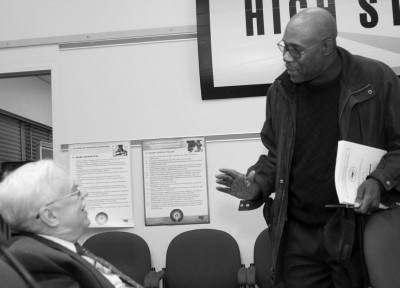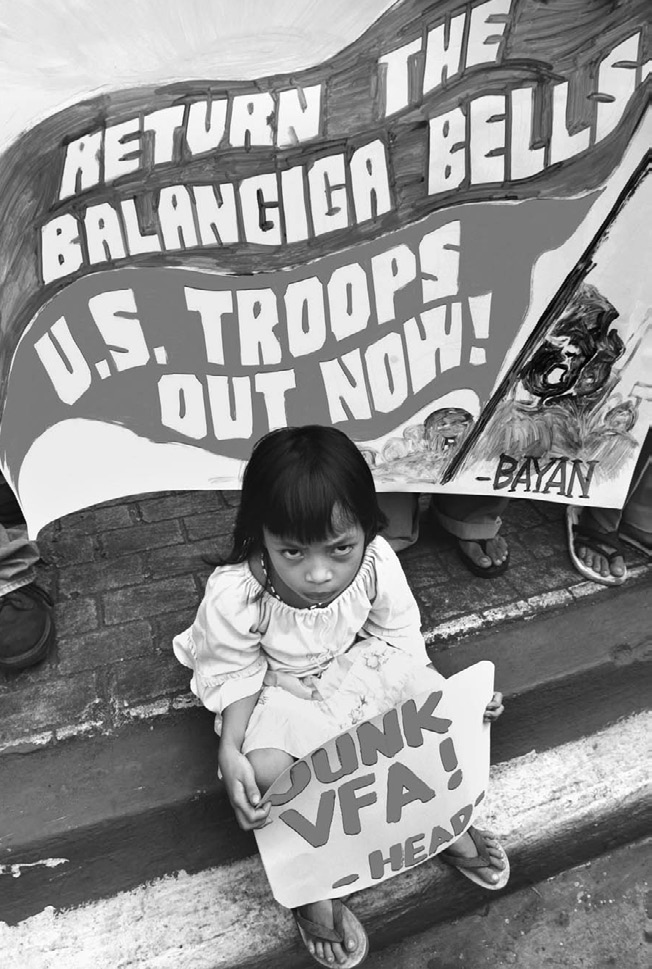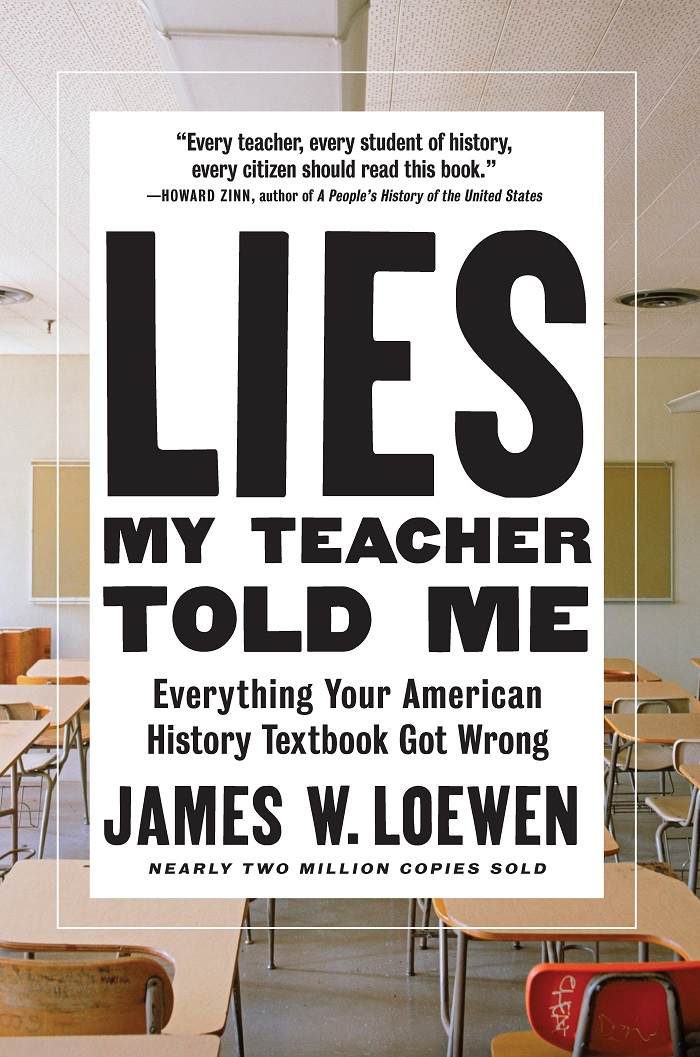
Milwaukee school board member Terry Falk (left) listens as local NAACP leader Wendell Harris argues against the proposed social studies textbook adoption. Photo by Barbara J. Miner.
Ever since the Civil Rights Movement, there has been grassroots pressure by educators and community activists to change the textbooks used in U.S. schools. Progress was made. Blatantly racist references to Africa and favorable comments about slavery were eliminated, photos were diversified, and stories of famous African Americans and women started appearing, if not in the main text, at least in scattered sidebars. Despite improvements, however, most mainstream social studies textbooks remain tethered to sanitized versions of history that bore students and mislead young minds.
This was brought home to me in 2008 when I examined the social studies textbook series being considered for adoption by the Milwaukee Public Schools. The books were from the dwindling constellation of large textbook publishers — Houghton Mifflin, Macmillan McGraw-Hill, and Scott Foresman. In keeping with state social studies standards, the 5th-grade textbooks in each series focus on United States history. Even though publishers make claims about being “multicultural” and honoring our nation’s “diversity,” none of the 5th grade United States history textbooks — even those exceeding 800 pages — examines the role of racism in U.S. history or even mentions the word “racism.” In two textbooks, the word “discrimination” doesn’t even appear. Nor do the texts tell students that any United States president ever owned slaves, even though 12 of the first 18 did, and all of the two-term presidents up until Lincoln owned and sold human beings.
As my colleagues and I examined the books more closely, a picture emerged that profoundly disturbed us. With important issues like racism, inequality, and conquest falling through the cracks of the historical narrative, there is little reason to recount the resistance to those types of oppression. There are occasional terse summations of resistance, but the bountiful history of people working together, crossing racial boundaries, and building social movements to make this country more democratic and just is omitted. Instead, history is more often viewed from the vantage point of the rich and powerful, the conquerors.










Twitter
Google plus
LinkedIn